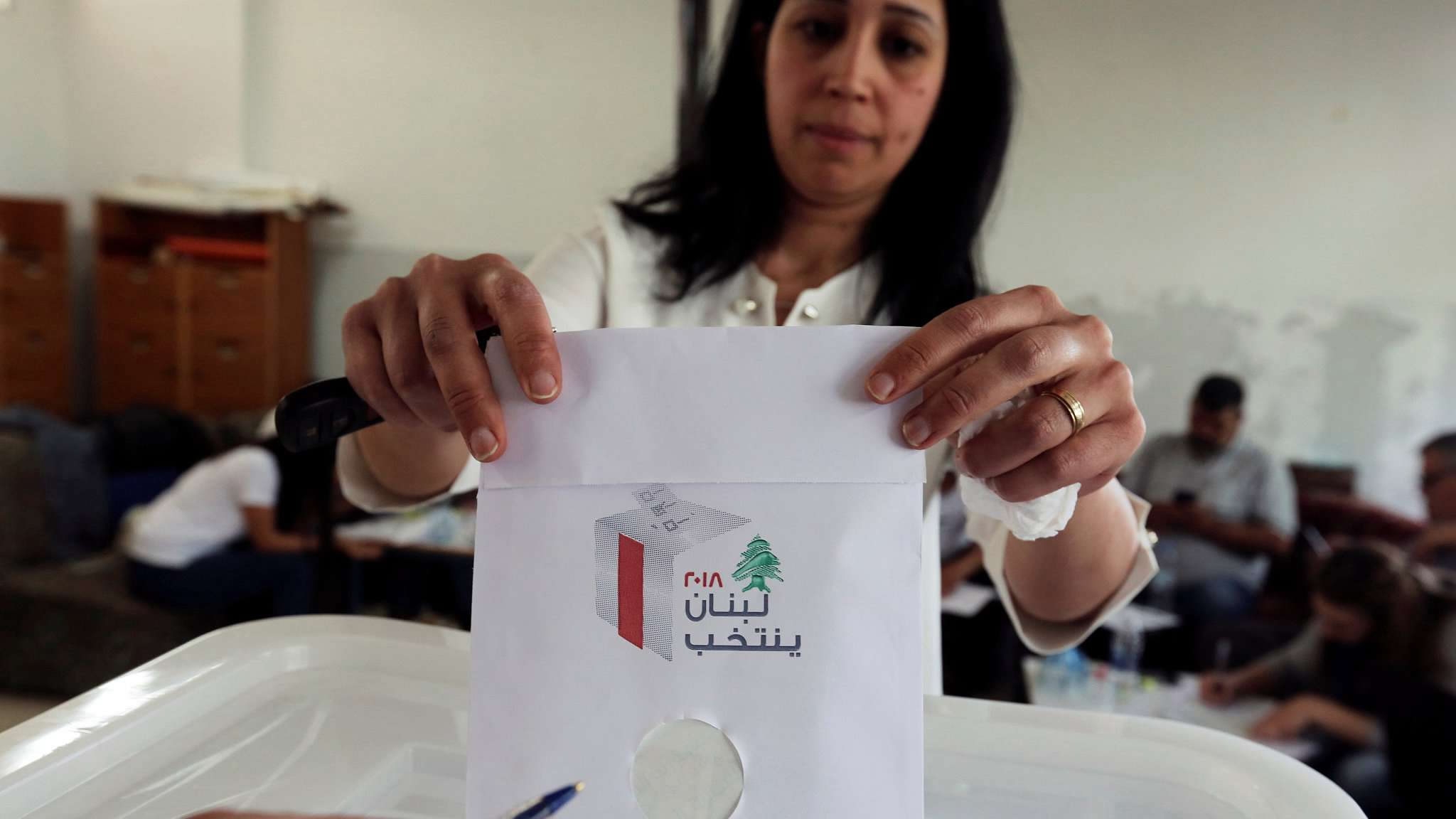Lebanon will hold its first parliamentary elections since 2009 on Sunday, the first test of a new electoral system designed to break nine years of voting paralysis.
The next parliament will select Lebanon's future prime minister and legislate on major social and economic issues, while attempting to keep sectarian tensions in check.
More than 3.6 million voters will take part in a new system that has attracted a raft of independent candidates hoping to unseat established politicians, though analysts expect the reformed process to result only in marginal changes.
What's happened since 2009?
The 128 lawmakers elected in 2009 have extended their mandates three times since, citing the ongoing war in neighboring Syria and dispute over the country's voting laws.
Syria's civil war, which began in 2011, aggravated Lebanese political divisions, chiefly between a pro-Syrian bloc led by Hezbollah and a bloc backed by the West and Saudi Arabia that is headed by current Prime Minister Saad Hariri.
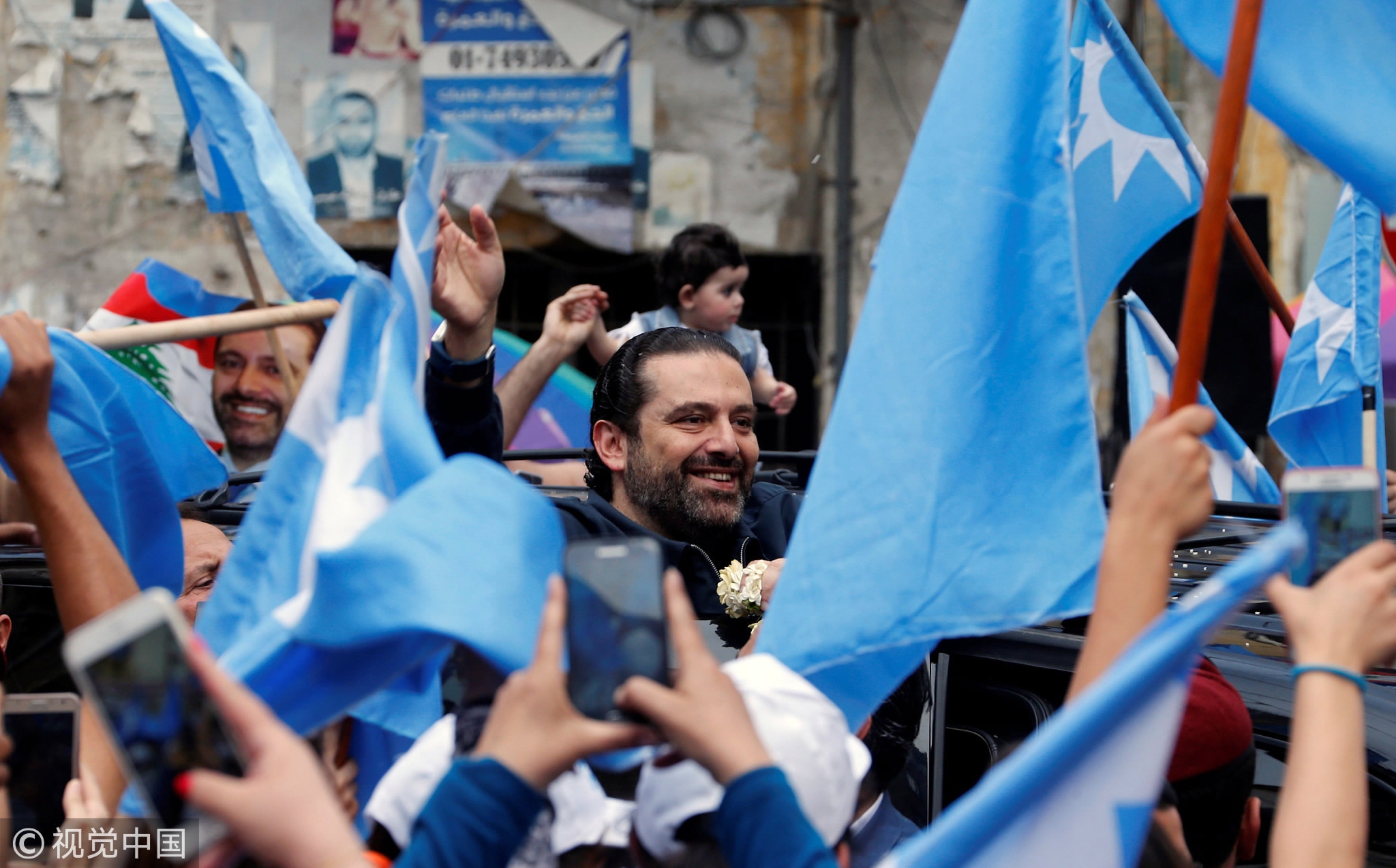
Lebanese prime minister and candidate for parliamentary election Saad Hariri greets his supporters in Beirut, Lebanon, May 4, 2018. /VCG Photo
Lebanese prime minister and candidate for parliamentary election Saad Hariri greets his supporters in Beirut, Lebanon, May 4, 2018. /VCG Photo
Hezbollah grew stronger as it became active in Syria, while Hariri was weakened as his main backer, Saudi Arabia, turned its focus elsewhere. Hariri ultimately compromised and in 2016 struck a deal that made Hezbollah ally Michel Aoun head of state, while Hariri became prime minister.
What are the issues in 2018?
Concerns about the economy and coping with more than one million Syrian refugees have taken center stage in election campaigning.
Hariri has called for swift reforms to put public finances on a sustainable path, warning that donors may otherwise withhold 11 billion US dollars in soft loans pledged in April to help revive the economy.
There has also been a focus on public services, particularly the inconsistent power supply, a legacy of the civil war in which infrastructure as devastated. The country's power gap is around 1GW, according to the Financial Times, equivalent to cuts of three hours per day in Beirut and up to 12 hours elsewhere.
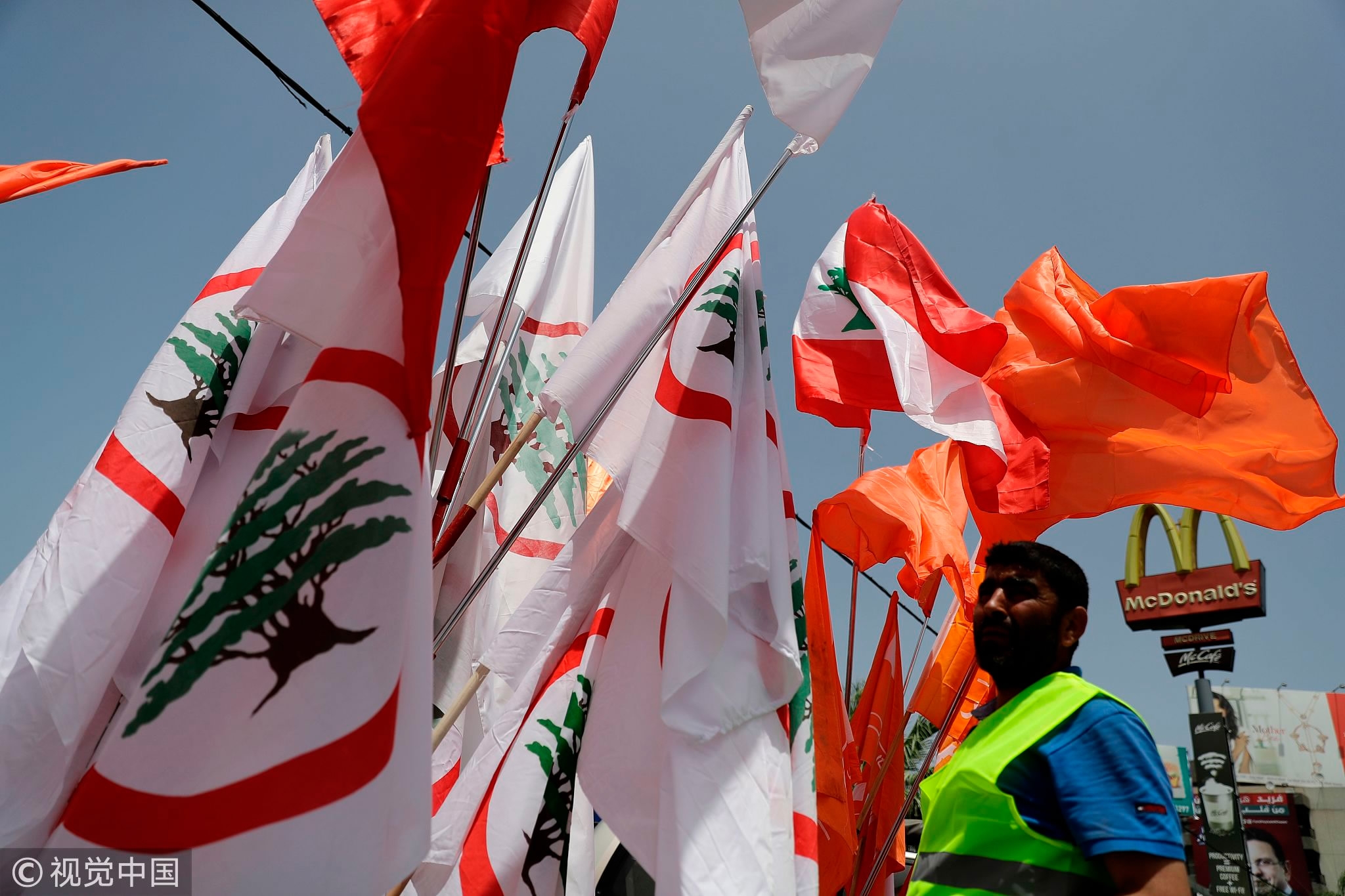
A street vendor sells flags of Lebanese Christian parties on the Jounieh highway north of the Lebanese capital Beirut, May 3, 2018. /VCG Photo
A street vendor sells flags of Lebanese Christian parties on the Jounieh highway north of the Lebanese capital Beirut, May 3, 2018. /VCG Photo
Continued issues over rubbish collection, basic rights and corruption are also on the agenda, along with Lebanon's regional role – particularly after the intrigue surrounding Hariri's resignation in Saudi Arabia and subsequent U-turn last year.
Who are the candidates?
The widespread anti-government protests in 2015, sparked by garbage left uncollected on streets for months, have spurred a new generation of activists looking to break into national politics.
In Beirut, independents running against the political establishment did well in local elections in 2016 and might win seats, although the voting system is still stacked against them. Sixty-six independents are up for election, though some have close ties to established politicians.
A record number of women will be standing, with 86 female competing among nearly 600 candidates. Women currently make up only three percent of the parliament, and only 12 women stood for election in 2012.
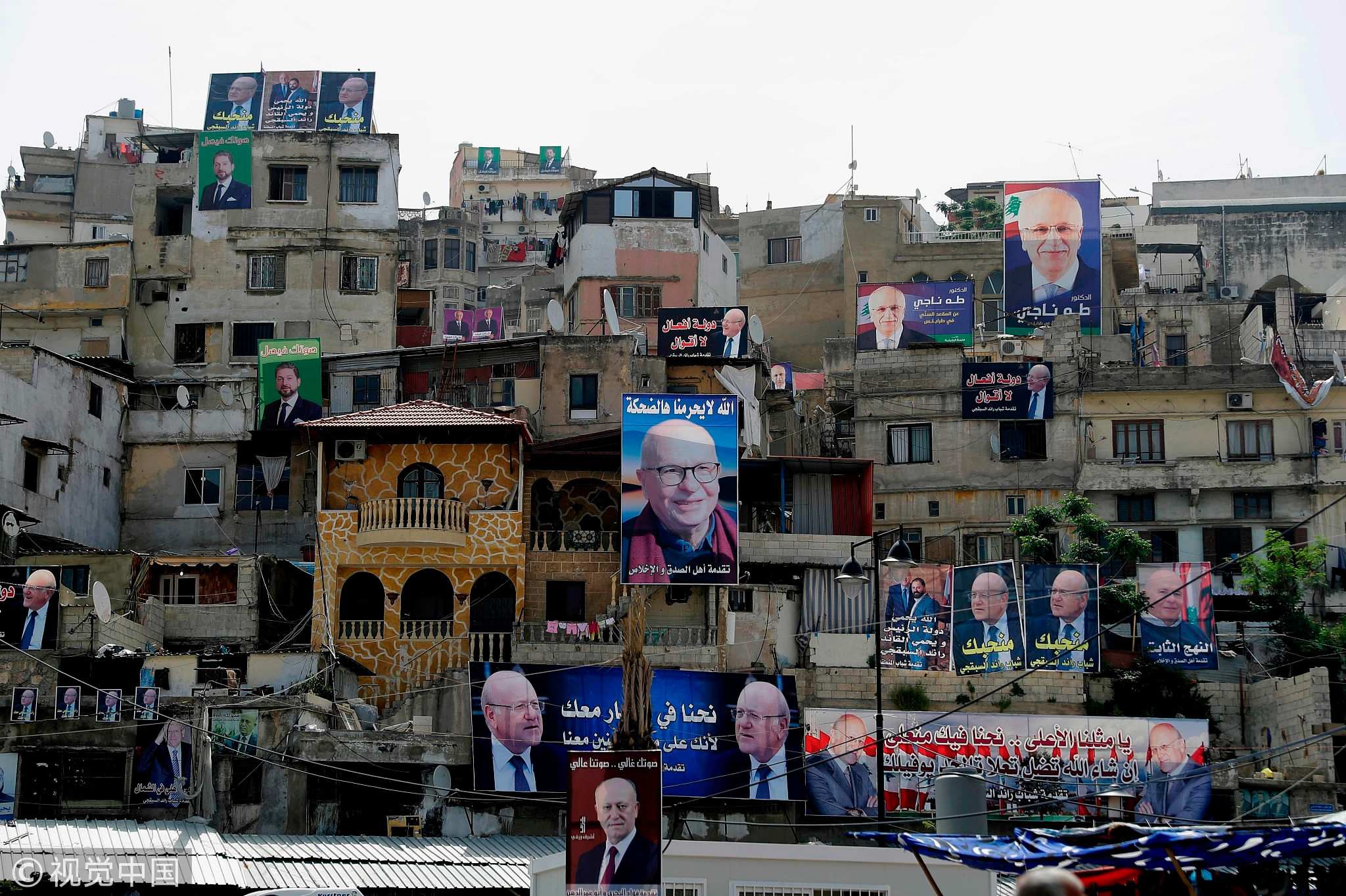
Posters of candidates for the upcoming Lebanese parliamentary elections hang on the walls of buildings in northern Lebanese city Tripoli's adjacent Bab al-Tabbaneh and Jabal Mohsen neighborhoods, May 3, 2018. /VCG Photo
Posters of candidates for the upcoming Lebanese parliamentary elections hang on the walls of buildings in northern Lebanese city Tripoli's adjacent Bab al-Tabbaneh and Jabal Mohsen neighborhoods, May 3, 2018. /VCG Photo
How does the political system work?
Lebanon splits power among religious groups according to quotas adjusted at the end of the 1975-90 civil war. The president is always a Maronite Christian, the prime minister a Sunni Muslim and the parliament speaker a Shi'ite.
In parliament, the 128 seats are split evenly – 64 for Christians and 64 for Muslims including Druze, with the two halves further divided among 11 total sects. Each electoral district has seats apportioned according to its demographic makeup.
Lebanon's main parties are sectarian, but for elections they create tactical alliances across religious lines to form joint candidate lists for each constituency.
What has changed this time?
Disagreement over the electoral law was a central reason polls have been delayed three times since 2009. The May 6 elections will be a test of the new system, passed in June 2017.
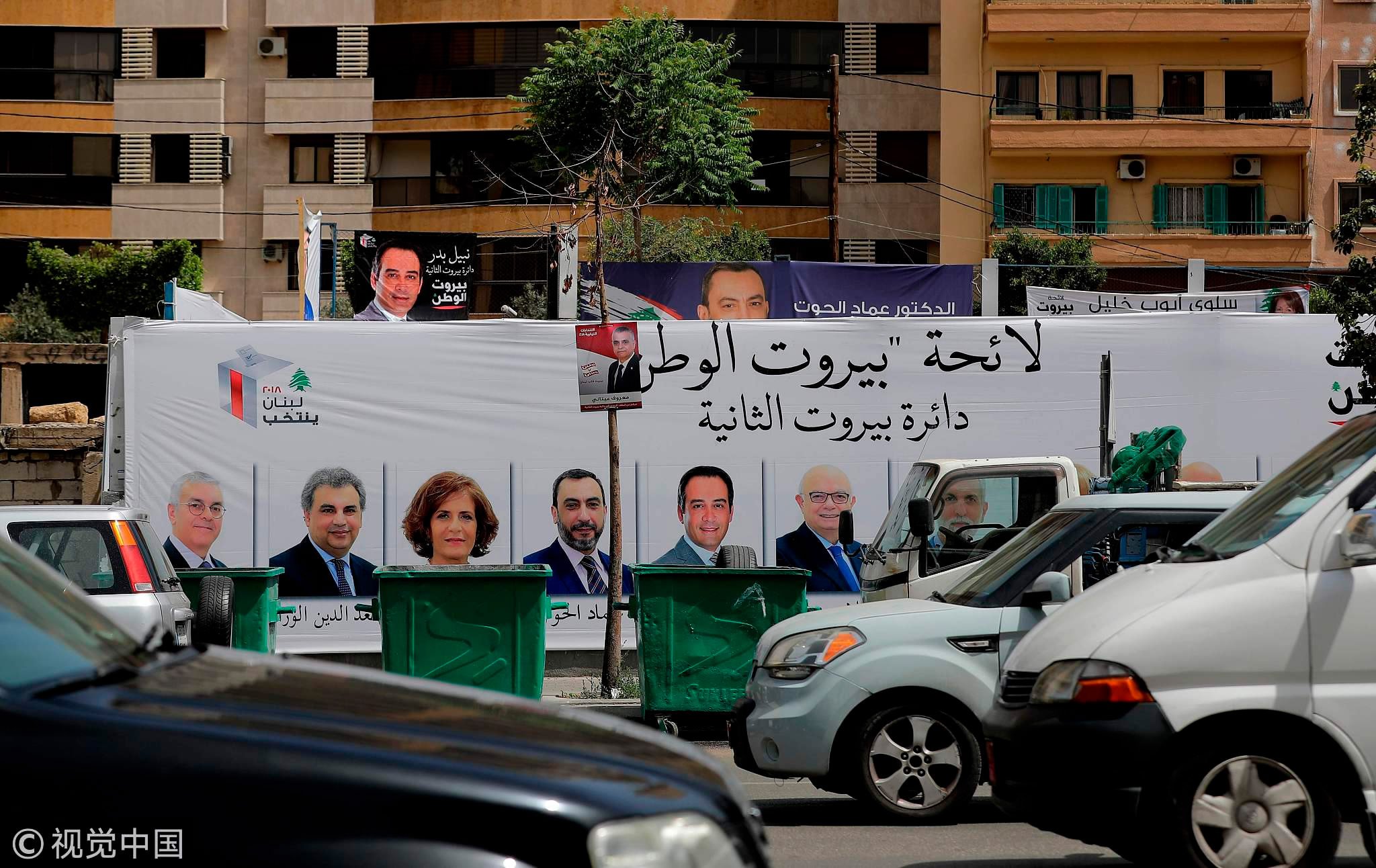
Pportraits of candidates for Lebanon's parliamentary elections in the Beirut district on a banner hung in a residential neighborhood of the Lebanese capital, May 4, 2018. /VCG Photo
Pportraits of candidates for Lebanon's parliamentary elections in the Beirut district on a banner hung in a residential neighborhood of the Lebanese capital, May 4, 2018. /VCG Photo
Under the previous system, voters could cast a vote for each seat in their district, with winners decided by a majority. Christians disliked the system because it gave Muslim voters sway over which Christian candidates won seats. Independents disliked it because it favored established political powers.
The new law is a compromise requiring voters to choose both a favored list – there are 77 lists – and a preferred candidate from it, with seats awarded under a complex formula.
Lebanese expatriates can vote abroad for the first time – around 82,000 have registered to do so.
Some critics say the new system still favors traditional local bigwigs. However, it has introduced uncertainty in some districts, opened the door to independents and produced an array of unlikely alliances at a local level.
(With input from agencies)

